Running a small business is no picnic.
It requires the juggling of a multitude of responsibilities, each of which requires your full attention. One of the most important of these responsibilities is marketing because it doesn’t matter how great your product or service is if no one knows about it.
Despite its importance, it’s not your only responsibility, so you don’t have time to waste. You need to make sure you’re marketing in the right places in order to make the best use of your time and money.
In the past, Facebook advertising has been a lucrative source for small business marketing but, in the ever-changing digital landscape, is this still so?
Read on to learn everything you need to know about Facebook advertising and marketing in 2019 and whether or not it’s a good fit for your small business.
Which types of businesses are using Facebook page advertising?
In its over ten years of existence, Facebook has been home to many different campaigns from many different businesses. In fact, nearly every type of business under the sun has tried its hand at Facebook.
However, Facebook has been more popular among certain sects of the business landscape than others due to its unique format. In the same way that Instagram and Twitter are more conducive to certain types of businesses, Facebook has its uses too.
Here are some types of businesses that are currently making good use of Facebook and how you can use their methods for your own purposes.
General goods businesses
Unlike other social media platforms, Facebook’s demographics are largely diverse, not leaning too far in any direction.
There’s almost the same amount of men and women on the site, and all ages are fairly well represented. The age group with the lowest percentage of users is the 65+ demographic, while the 18-29 demographic has the highest percentage of users.
Location, education, and income are all nearly equal as well. With this in mind, Facebook is clearly the ideal platform for general goods providers.
For example, if you offer something like a food or hygiene product that appeals to everyone, regardless of sex, age, or income, Facebook becomes an incredibly useful tool for reaching the widest possible audience.
Video-based businesses
Recently, Facebook has promoted videos in its internal algorithm, which means that, of everything you can post to your business page, nothing will reach as many people as videos.
While any small business can utilize this unique feature, it’s naturally more effective with businesses that have an entire model built around video. In this way, businesses, like marketing agencies, that create filmed promotional material are primed for success.
In addition to being ranked highly in the algorithm, Facebook also offers a live streaming platform and a service called Facebook for Creators. The latter offers insights and community tools for video creators that aren’t available anywhere else on the sight.
What are the Facebook advertising guidelines?
As with any platform, Facebook comes with a series of rules and suggested practices that you should know to achieve the best results.
For example, videos being ranked higher in your followers’ timelines is just one of many Facebook eccentricities that can reshape how you approach the platform as a marketing tool.
Before taking your small business to Facebook, knowing as many of these Facebook advertising guidelines as possible will ensure that you put your best foot forward.
Tailor your images specifically for Facebook
One of the most common mistakes that small businesses make is taking a single picture and using it everywhere. Images must be of the highest quality at all times, which means altering them to fit the guidelines for every platform.
On Facebook, your image should be sized as 1200 x 630 pixels. If not, the image will be reshaped by Facebook to fit their timeline format, which means the image will be stretched or altered in a way that hurts its quality.
In addition to size, you want to make sure that you refrain from using too much text in your image. Anytime your image is made up of more than 20% text, it will be automatically disapproved of by Facebook’s ad software.
Keep your message short
It may be tempting to tell the life story of your small business in an ad, but doing so would mean certain failure (a video would be a better place for such a tactic). Ads on Facebook are far more successful when they are short and to the point.
While there’s no exact length that can guarantee more engagements with your ad, some suggest keeping the body text of your ad to under 90 characters.
The headline of your ad should be even shorter, coming in at under 30 characters. Not only is it better for your headline to get straight to the point, but a long headline could risk being cut off mid-sentence.
Source: Screenshot
Refrain from any adult content
If you’re running a small burger joint, you may be tempted to talk to your potential customers like a close friend and adopt some salty language.
While this might be in the character of your business, Facebook prohibits any ads featuring profanity. In addition, they also prohibit ads with bad grammar, so make sure you double-check your ads before trying to send them out.
Aside from prohibiting certain content outright, there are other types of content that Facebook will restrict or have separate requirements. For example, if you’re offering a weight loss product or plan, you can only advertise to users over the age of 18.
How can your small business make a Facebook campaign?
Now that you know what sorts of businesses use Facebook and how to adhere to its standards, you’re probably ready to create your own Facebook campaign.
With the many facets of Facebook, you can go about this in several different ways. Since many small businesses have braved the Facebook wilds before you, the most lucrative of Facebook’s offerings are already known.
Here’s what every small business needs to know about constructing a Facebook campaign.
Use Facebook’s targeting ability
Among the most useful tools that Facebook gives advertisers is a powerful ability to target specific demographics. By doing so, you can tailor specific posts to a specific audience.
Knowing what you know about Facebook’s all-encompassing user base, it should be clear how useful this targeting feature is.
If you own a small record store, for instance, and have recently received a shipment of blues albums, you can specifically target an ad to people who live in the area and have a history liking blues-related pages.
Cross-promotion with email
Contrary to what you might think, Facebook advertising can be used to advertise your other marketing efforts, such as email. By doing so, you can allow the different wings of your marketing strategy to bolster each other, which is especially helpful if one has a significantly higher reach than the other.
When writing posts to promote your mailing list, you may want to consider mentioning any discounts that are exclusive to email subscribers. Asking people to sign up politely is nice, but giving them an incentive is likely to reap the best results.
Writing posts isn’t the only way to get followers to subscribe to your mailing list. You also have the option of adding a subscribe form to your business’ page, which allows people to easily input their information.
Likewise, you should use your mailing list to drive subscribers to your Facebook page.
Source: Really Good Emails
Wrap up
Considering the influx of other social media platforms, it’s understandable that some people might believe Facebook to be a dying platform and a waste of marketing resources.
However, putting aside its massive pool of 2.32 billion active users worldwide, Facebook still provides small businesses with enough tools to get the biggest bang for their advertising buck.
It’s important to keep the following in mind when looking to advertise on Facebook:
- It’s home to a diverse user base
- Videos receive the highest ranking in timelines
- Images must be custom fitted to Facebook standards
- Body text in ads should be minimal
- Avoid adult content
- Make use of the targeting ability
- Cross-promotion is a must
As long as your small business sticks to these best practices, Facebook business advertising will continue to be a viable resource for the foreseeable future.
Once you’ve mastered Facebook business advertising, you might want to move on to other social media platforms. Here are some helpful tips for crafting an effective social media strategy across all platforms.







